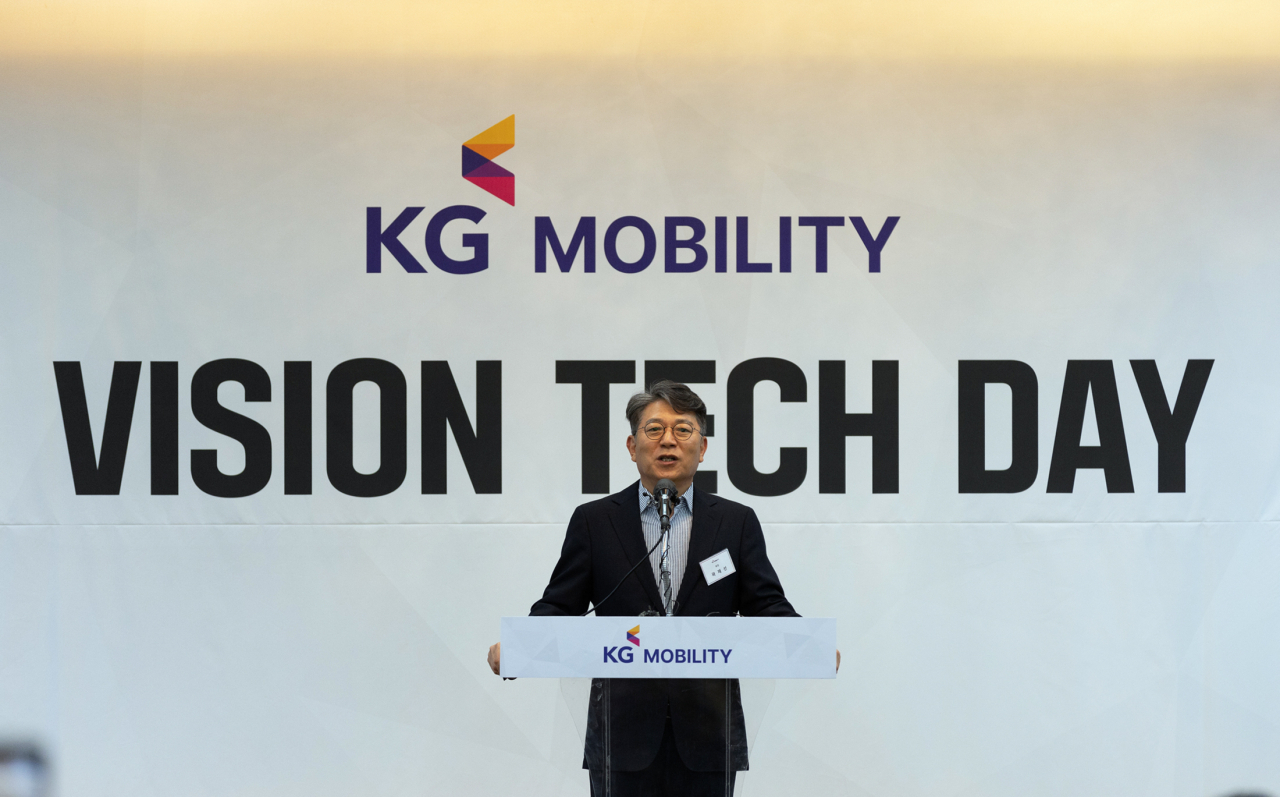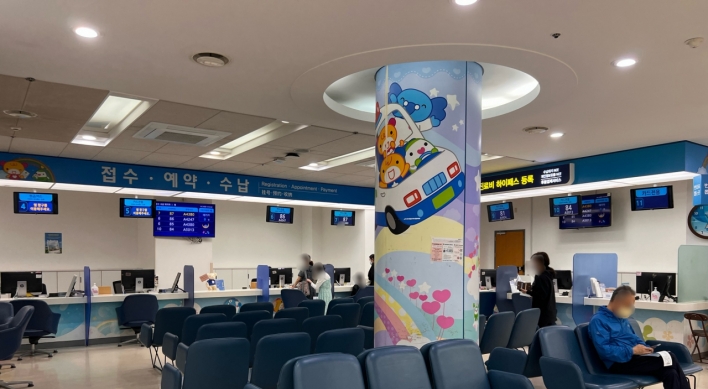KG Mobility unveils roadmap for reboot
In surprise meeting with Hyundai Motor chief, KG chairman hints at tapping into niche markets
By Byun Hye-jinPublished : April 4, 2023 - 15:34

KG Mobility, formerly SsangYong Motor, said Tuesday it will be reborn as a futuristic mobility company focusing on electric vehicles, autonomous driving and software-defined vehicles.
“Unlike other global automakers, we don’t consider exporting cars as our one and only goal,” said KG Mobility Chairman Gwak Jae-sun during a press conference at Kintex, Ilsan, Gyeonggi Province. “Instead, we will strive to produce cars made from our own (automotive) technology.”
With the technology push for future cars, the company will develop two electric car platforms that are essential for standardizing key components of vehicles’ structures.
Based on the internal combustible engine car system, a converted electric powertrain platform will be applied to the company’s new launches: an electrified version of its bestselling midsized sport utility vehicle, the Torres EVX, and the KR10, the electric version of its steady-selling Korando SUV.
The other platform for fully electric cars under development will be used in the upcoming large electric SUV called the F100 as well as in new EV models. With further updates, it will be applied to produce at least 100,000 units, ranging from electrified SUVs to pickups.
This skateboard platform, a chassis installed with a massive battery, with a flat and stackable EV battery design, will save more space for the car’s interior, said Chung Jae-wook, head of KG Mobility's electronics development division.
KG Mobility also boasted the safety of its EV batteries, which adopted cell-to-pack technology, integrating battery cells directly into a pack without building a module, for the first time in Korea-made electric cars.
Aside from lithium iron phosphate (LFP) batteries that will be installed in the Torres EVX, it plans to use hybrid batteries of nickel, manganese and cobalt (NCM) along with LFP, high-performance NCM cells and solid-state batteries that are also under development.
The second prong of the company’s tech roadmap involves software-defined vehicles that manage operations through software updates.
“SDVs are like smartphones with wheels,” said Chung. “We will develop a centralized electronic architecture and a high-performance controller to accelerate the speed of the car’s internal network system with fast yet stable software management.”
Unlike the two different types of smartphone software -- Android and IOS -- the company will provide an integrated operating system that customizes the user interface by installing and deleting applications for shopping, games and OTT streaming services.
A digital key that allows car owners to lock and unlock their vehicle and share their car keys through smartphones will be applied to the Torres EVX. "Over the Air" technology is also on its way to providing real-time vehicle monitoring and software updates.
The third part of the future car strategy highlights autonomous driving cars, where the company aims to develop by 2030 a Level 3 self-driving system on highways, a Level 4 system for driverless robo-taxis, and a Level 4 Plus system for self-parking and self-charging EVs.
As for the cloud system, the company plans to partner up with tech companies to develop an advanced connected car platform in which artificial intelligence processes massive car data and provides service updates.
“I met with (Hyundai Motor Group) Chairman Chung Euisun (today) at the Seoul Mobility Show 2023,” said Gwak. “While exchanging congratulations, I said to Chung that KG Mobility aims to foray into emerging markets, a small share of global carmakers’ overseas business, due to our limited production capability.”
Gwak cited “smaller markets” such as Africa and South America as target markets where the carmaker seeks to sell 1,000 to 2,000 cars per year.
“Considering Vietnam’s 75 percent tariffs for (imported) cars, we plan to build cars there, while we are eyeing Southeast Asia and the Middle East as well,” he said.
Starting with the Torres EVX, slated for launch late this year, the company plans to roll out three new SUVs before 2025, including the O100, which is expected to become the first Korea-made electric pickup. Its compact SUV Tivoli is also set for a face-lift.





![[Grace Kao] Hybe vs. Ador: Inspiration, imitation and plagiarism](http://res.heraldm.com/phpwas/restmb_idxmake.php?idx=644&simg=/content/image/2024/04/28/20240428050220_0.jpg&u=)
![[Herald Interview] Mom’s Touch seeks to replicate success in Japan](http://res.heraldm.com/phpwas/restmb_idxmake.php?idx=644&simg=/content/image/2024/04/29/20240429050568_0.jpg&u=)


![[News Focus] Lee tells Yoon that he has governed without political dialogue](http://res.heraldm.com/phpwas/restmb_idxmake.php?idx=644&simg=/content/image/2024/04/29/20240429050696_0.jpg&u=20240429210658)









![[Today’s K-pop] Seventeen sets sales record with best-of album](http://res.heraldm.com/phpwas/restmb_idxmake.php?idx=642&simg=/content/image/2024/04/30/20240430050818_0.jpg&u=)